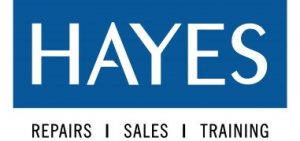FDA and OSHA Respirator Requirements for Dentistry COVID-19 Prevention
The CDC and NIOSH have designated N95 respirators as personal protective equipment. These masks are designed to protect the user from airborne particles by filtering out 99% of all particulate matter larger than 0.3 microns in diameter, including those that may carry a virus or bacteria into your lungs (CDC). This type of protection is ideal for health care workers who come across patients with highly infectious diseases such COVID-19 because it prevents direct contact between person-to-person while still enabling conversation through an air space under the mask (NIOSH).
Clear face shields should not be used when wearing these types of masks; rather, they must always be worn over surgical masks if there is any chance at risk for fluid contamination on one’s face.
N95 Respirator Enforcement Guidance
The Centers for Disease Control and Prevention (CDC) does not recommend that the general public wear N95 respirators to protect themselves from respiratory diseases, including coronavirus. Those are critical supplies that must continue to be reserved for health care workers and other medical first responders as recommended by current CDC guidance.
If you are an employer with employees who use or might need to use respiratory protection, it is important that your RPPs follow OSHA guidelines. The shortage of N95 masks during the COVID-19 pandemic should be a concern for all employers – and make sure they keep their eye on this issue.
Employers are required to identify and evaluate respiratory hazards in the workplace. They must then put together a written plan that outlines how they will address these risks, perform periodic updates on their program as new information becomes available, and ensure all employees have access to an appropriate respirator for any given task or circumstance.
The limited supply of N95 FFRs has posed a significant problem for employers, but there are many ways to reduce the demand while still maintaining occupational safety. Employers should find other alternatives in order to decrease their need for these respirators and prevent any public health risks that may be caused by respiratory illness.
If respiratory protection is necessary, employers may consider using other types of respirators that provide equal or greater protection than an N95 FFR such as NIOSH-approved elastomeric masks and powered air purifying respirators. Other filtering facepiece masks like the 99, 100, 95 and so on are also permissible alternatives for those who cannot find a mask with replaceable filters.
When considering N95 alternatives, check to ensure that they are NIOSH-approved. When these alternatives are not available or where their use creates additional safety and health hazards employers may consider the extended use or reuse of N95 FFRs.
Extended use or reuse of N95s
In the event extended use or reuse of N95 FFRs becomes necessary, this is permitted as long as it maintains structural and functional integrity. The filter material should not be soiled with blood, oil, paint etc. Extended usage over re-use is preferred due to risks associated with contact transmission.
Employers should train their employees to understand that if the structural and functional integrity of any part of the respirator is compromised, it has to be thrown out. If a successful user seal check cannot be performed with one mask, another can always try for success in this way by checking again.
Use of expired N95 Guideline
In the event that N95s are not available and the employer has shown a good faith effort to acquire the respirators or use alternative options, as outlined below, CSHOs should exercise enforcement discretion for expired N95 FFRs. Employers may only previously have NIOSH-certified expired N95 FFRs found at www.cdc.gov/coronavirus/2019-ncov/. Workers should be notified that they are using an outdated version of this device – raised awareness about how dangerous it is can serve as motivation to take action in order to avoid infection from COVID-19 virus when purchasing new masks.
N95 Respirators OSHA Compliance Requirements
The N95 is the basic workhorse for healthcare applications, as it’s designed to seal tightly against the user’s face. In order for an employer or service provider to be in compliance with OSHA standards when using respirators such as these, they must follow a few guidelines:
- Written Respiratory Protection Program (RPP)
- Qualified Administrator
- Medical Clearance for employees to wear an N95
- Annual Fit Testing
- Annual Training
Ensure that you and your team are always adhering to OSHA and CDC Infection Control protocols. For in-house or online training, you may visit the links below:
Hayes also specialize in instrument sharpening & repairs. Our experienced technicians have decades of experience working with all major brands of dental handpieces including:
A-dec | Beyes | Bien Air | Denticator | Hall | Henry Schein | Impact Air | Kavo | Lares | Midwest | Morita | Nobel Biocare | Nouvag | NSK | Patterson | Schein Master | Shamrock | Star | Strauman | Stryker | W&H | Young | American Eagle | HU Friedy | Nordent | PDT




